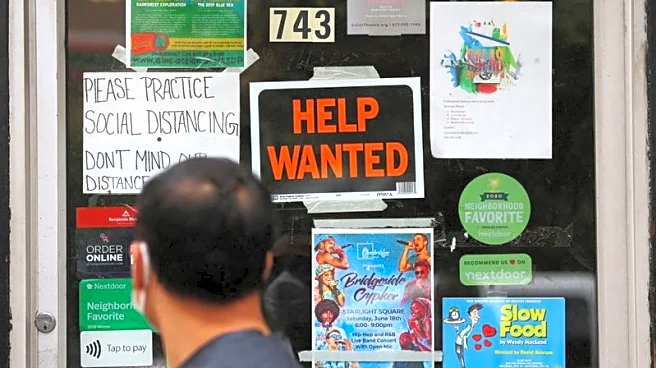What's Happening?
Talent leaders are navigating a complex landscape as 2025 draws to a close, with ongoing challenges such as the government shutdown affecting workforce data collection and operations reliant on federal
contractors. The integration of artificial intelligence tools is reshaping work culture, creating pressure to hire quickly despite a slowing job market. The reduction of middle management layers is impacting employee experience, with managers feeling stretched and employees experiencing burnout. These trends are compounded by the demand for rapid organizational change, which may not align with current work culture readiness.
Why It's Important?
The evolving workforce dynamics present significant implications for talent management and organizational productivity. The integration of AI tools offers potential efficiency gains but also poses challenges in terms of employee adaptation and management structures. The reduction in middle management can lead to decreased productivity and employee engagement, affecting overall organizational performance. Talent leaders must balance the need for technological advancement with the human aspects of work, ensuring that employees are supported during transitions.
What's Next?
Organizations may need to invest in upskilling initiatives to prepare employees for the AI-driven work environment. Talent leaders will likely focus on strategies to enhance employee engagement and support managers in adapting to new roles. The ongoing government shutdown may prompt discussions on alternative data sources for workforce planning. As AI continues to influence work culture, companies may explore innovative approaches to integrate technology while maintaining a positive employee experience.
Beyond the Headlines
The integration of AI into the workplace raises ethical considerations regarding job displacement and the future of work. Organizations must consider the long-term impacts of automation on workforce diversity and inclusion. The cultural shift towards a human-machine era may require a reevaluation of organizational values and leadership approaches. Ensuring that technological advancements align with ethical standards and employee well-being will be crucial for sustainable growth.












